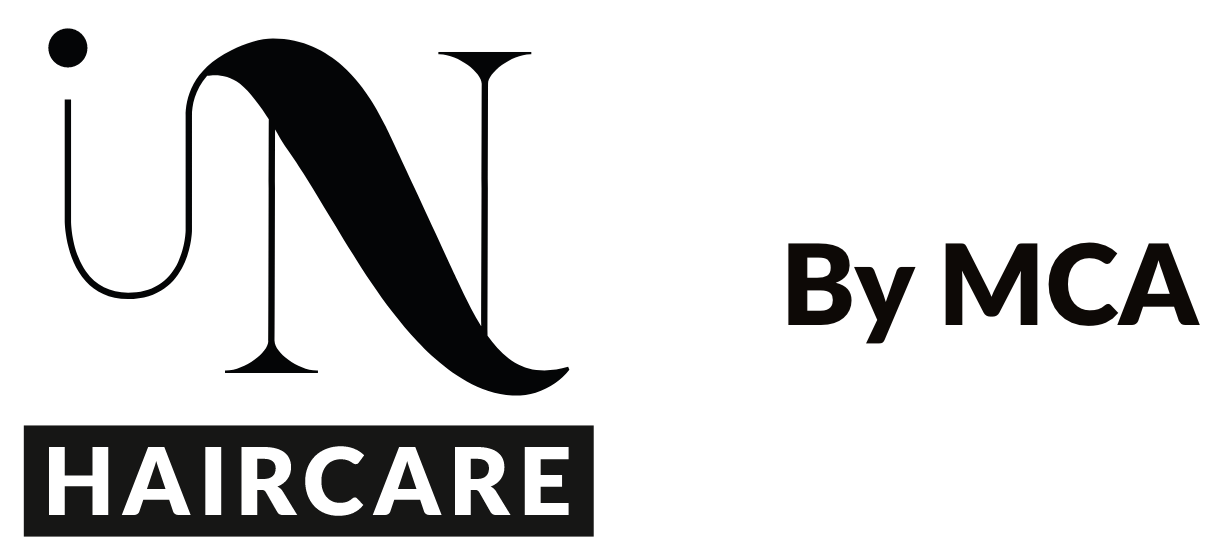Top E-commerce Platforms to Use for Your Business
E-commerce has become an essential component for businesses of all sizes. Whether you’re launching a small business or scaling up an established enterprise, choosing the right e-commerce platform is critical for your online success. With the vast number of platforms available, it can be overwhelming to decide which one suits your needs best. That’s where CouponXoo comes in—helping you save on essential tools by providing access to deals and discounts on various e-commerce services. In this guide, we’ll walk you through some of the top e-commerce platforms to consider, so you can make an informed choice while also keeping costs down with the best deals available.
1. Shopify
Overview:
Shopify is one of the most popular e-commerce platforms in the world. It offers a comprehensive solution for businesses of all sizes, making it easy for anyone to set up, design, and manage an online store. Shopify is well-known for its user-friendly interface and robust set of features.
Key Features:
-
Ease of Use: Shopify offers an intuitive drag-and-drop interface, allowing users to build an online store without any coding knowledge.
-
App Marketplace: With over 4,000 apps available, businesses can customize their stores to fit their needs. From marketing tools to payment gateways, the app marketplace enhances Shopify’s functionality.
-
Payment Gateways: Shopify supports multiple payment methods, including PayPal, Stripe, and its own Shopify Payments, which eliminates transaction fees for using the platform.
-
Mobile-Friendly: Shopify's themes are mobile-responsive, ensuring that your store looks great on any device.
-
Customer Support: 24/7 customer service is available through chat, email, and phone support.
Pros:
-
Easy to use for beginners and professionals alike.
-
Wide variety of apps and themes for customization.
-
Strong security features to protect your store and customer data.
-
Scalable for businesses of all sizes.
Cons:
-
Costs can add up, especially if you use many apps or premium themes.
-
Limited built-in features, often requiring third-party apps for extended functionality.
Who Should Use Shopify:
Shopify is ideal for entrepreneurs and small-to-medium-sized businesses that want a simple, all-in-one solution with a fast setup time. Its scalability also makes it a good option for businesses planning to grow.
2. WooCommerce
Overview:
WooCommerce is a WordPress plugin that turns your website into a fully functional e-commerce store. It’s an open-source platform, giving users full control over every aspect of their online shop. WooCommerce is highly customizable and is a great option for businesses that are already familiar with WordPress.
Key Features:
-
Customizability: As an open-source platform, WooCommerce allows you to customize everything from your product pages to checkout experiences. You can add your own custom code, making it ideal for developers.
-
Plugins and Extensions: WooCommerce has a huge library of extensions, including SEO tools, payment gateways, and marketing integrations.
-
SEO-Friendly: Since WooCommerce is built on WordPress, it’s highly optimized for SEO. You can utilize WordPress’s powerful SEO plugins to improve your store's visibility on search engines.
-
Payment Options: WooCommerce supports a wide range of payment gateways, including PayPal, Stripe, and Square.
-
Community Support: Since WooCommerce is a part of the WordPress community, you have access to a large base of support, including forums, tutorials, and guides.
Pros:
-
Complete control over store customization.
-
No monthly fees unless you choose paid plugins or themes.
-
Integrated with WordPress, making it great for content-driven e-commerce websites.
-
Large community for support and resources.
Cons:
-
Requires a WordPress site, which might be an extra step for those without one.
-
Not as beginner-friendly as platforms like Shopify.
-
Hosting, security, and maintenance need to be managed by the user.
Who Should Use WooCommerce:
WooCommerce is ideal for businesses that already use WordPress or those who need a highly customizable platform. It’s perfect for those who prefer having control over every aspect of their online store.
3. BigCommerce
Overview:
BigCommerce is a powerful e-commerce platform designed for scalability. It’s perfect for businesses that are looking to grow rapidly and need an e-commerce platform that can handle high volumes of traffic and sales. BigCommerce offers a robust suite of tools without needing to rely on third-party apps as much as Shopify does.
Key Features:
-
Built-In Tools: BigCommerce comes with a wide range of built-in tools, including advanced SEO, product reviews, and analytics, reducing the need for additional apps or extensions.
-
Multi-Channel Selling: You can sell across various platforms, including Amazon, eBay, and social media, all from your BigCommerce store.
-
Flexible API: BigCommerce offers a flexible API, allowing developers to customize the platform further to meet specific business needs.
-
SEO Capabilities: BigCommerce provides extensive SEO features, ensuring that your products rank well on search engines.
-
No Transaction Fees: Unlike many platforms, BigCommerce doesn’t charge transaction fees, making it a cost-effective option for high-volume sellers.
Pros:
-
Excellent for large businesses looking to scale.
-
No transaction fees, regardless of the payment gateway used.
-
Advanced built-in features that reduce the need for third-party apps.
-
Supports multi-channel selling.
Cons:
-
Pricing plans are higher compared to platforms like Shopify and WooCommerce.
-
Customization options are not as extensive without developer assistance.
-
Learning curve for beginners due to the extensive features.
Who Should Use BigCommerce:
BigCommerce is perfect for large or rapidly growing businesses that need a robust platform capable of handling high sales volumes. It’s also a great option for those looking to sell across multiple channels.
Related: Best Career Development Tools with Coupons: Maximize Your Growth While Saving
4. Wix eCommerce
Overview:
Wix eCommerce is a user-friendly platform designed for small businesses and entrepreneurs. Wix is best known for its website-building tools, and its e-commerce platform follows the same drag-and-drop ease of use. It’s a great option for those who want to build a visually appealing store without a lot of technical know-how.
Key Features:
-
Drag-and-Drop Builder: Wix’s drag-and-drop editor allows you to build a custom online store without any coding.
-
Templates: Wix offers a variety of pre-designed templates that can be tailored to your business’s needs.
-
Mobile Optimization: All Wix stores are mobile-friendly and can be further customized for mobile users.
-
SEO Tools: Wix provides built-in SEO tools to help optimize your store for search engines.
-
Multiple Payment Options: Wix supports a variety of payment gateways, including PayPal, Stripe, and Square.
Pros:
-
Extremely easy to use, even for beginners.
-
Affordable pricing plans, making it accessible for small businesses.
-
Excellent design flexibility with a wide variety of templates.
-
24/7 customer support available.
Cons:
-
Limited scalability for larger businesses.
-
Less flexibility in customization compared to open-source platforms.
-
The app marketplace is not as extensive as Shopify’s.
Who Should Use Wix eCommerce:
Wix eCommerce is perfect for small businesses, entrepreneurs, or hobbyists who want a simple and affordable way to build an online store. It’s ideal for those focused on visual design and ease of use.
5. Magento (Adobe Commerce)
Overview:
Magento, now known as Adobe Commerce, is an enterprise-level e-commerce platform designed for businesses that require a highly customizable and scalable solution. It’s open-source, like WooCommerce, but offers far more extensive features and capabilities, making it ideal for large companies or businesses with specific needs.
Key Features:
-
Customizability: Magento offers an unmatched level of customization, allowing businesses to create highly personalized customer experiences.
-
Third-Party Integrations: Magento supports a wide range of third-party integrations, including CRM systems, payment gateways, and shipping solutions.
-
Scalability: Magento can handle large volumes of traffic and sales, making it suitable for enterprise-level businesses.
-
SEO Optimization: Magento provides strong SEO capabilities, helping your store rank better on search engines.
-
Advanced Analytics: Magento includes built-in analytics and reporting features to help businesses track performance and make data-driven decisions.
Pros:
-
Extremely flexible and customizable.
-
Designed to handle large-scale businesses with high traffic and sales.
-
Strong community and a vast library of extensions.
-
SEO and marketing features are advanced.
Cons:
-
Requires development knowledge or hiring a developer for setup and maintenance.
-
Hosting costs can be high for larger stores.
-
Steeper learning curve compared to other platforms.
Who Should Use Magento:
Magento is ideal for large businesses that need a scalable, customizable platform. It’s perfect for enterprises with the budget and resources to maintain a complex e-commerce system.
Conclusion
Selecting the right e-commerce platform is a key decision that will impact your business's growth and success. Whether you’re a small business owner, an entrepreneur, or a large-scale enterprise, there’s a platform out there that fits your needs. Shopify and BigCommerce are excellent choices for businesses that prioritize ease of use and scalability, while WooCommerce and Magento offer more customization for those willing to manage technical aspects. Wix eCommerce is perfect for those looking for simplicity and visual appeal.
Remember, when setting up your store, you don’t have to break the bank. CouponXoo can help you save money with deals and discounts on tools and services, making your e-commerce journey more affordable and successful. So, take the time to choose the right platform, and with the help of CouponXoo, you can launch your business with less financial stress and more confidence.
Related: Review: Best Certification Programs with Promo Codes
DEALS DELIVERED TO YOUR INBOX.
Subscribe now for top-notch shopping & Investing advice. Receive hot Vouchers into your wallet
By submitting your information you agree to the Terms & Conditions and Privacy Policy
Related Articles

Sustainable Shopping: Eco-Friendly Products and Deals for 2025

Transform Your Look: 10 Stunning Fall 2025 Hair Color Trends to Try Now!

Top 10 Modern Wedding Cake Aesthetic Ideas That Redefine Elegance

Glamorous Glow: Timeless Wedding Makeup Inspirations from Real Brides

Go Green & Glow: 10 Energizing Green Smoothie Recipes for Every Day

Ink the Unseen: Haunted House Tattoo Ideas Full of Shadows, Stories, and Spine-Tingling Style
Popular Brands
View all
Dropchat.co
5 Coupons Available

In Haircare
4 Coupons Available

Reflio
5 Coupons Available
Finalscout
5 Coupons Available

Novoma
5 Coupons Available

Botsify
5 Coupons Available
Popular Articles
View all
Best Scuba Diving Spots in the Maldives 2026: Top Dive Sites for Mantas, Whale Sharks & Reefs

Blush in a Glass: Aesthetic Homemade Strawberry Milk That Tastes as Good as It Looks

Review: Best Coffee Makers to Buy on Cyber Monday 2024

Cherry Blossoms Season in Japan 2026: Ultimate Sakura Viewing Guide & Best Spots

Best Educational Toys for Kids: Fostering Fun and Learning
.png)
Eco-Friendly Winter Escapes: The Best Sustainable Destinations for 2025
LATEST

Last updated: Jan 20, 2026
.png)
Last updated: May 21, 2025

Last updated: Jun 19, 2025

Last updated: Sep 16, 2025
.png)
Last updated: Dec 3, 2025

Last updated: Apr 29, 2025
